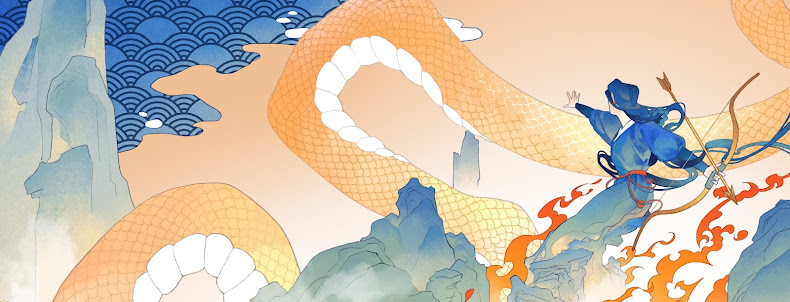It
took me over three months to finish reading this 1,332-page Chinese classic
novel. There are apparently several popular versions that are based on abridged
imprints published under the Chongzhen reign (1627 – 1644). The version I read
is one based on the 1617 unabridged imprint published during the Wanli reign
(1573 – 1620). This version has a preface written by 欣欣子, who claimed to be a friend of the author’s, and who stated
therein the author’s motive for writing the novel. He also confirmed that the
author was from the Lanling County of Shandong Province, which explains why the
novel was written in the Lanling vernacular. (The direct translation of the
author’s pen name is “The Scoffing Scholar of Lanling”.)
The story is a spin-off of one of the
sub-stories in Water Margin (one of
the four great Chinese classic novels) about Pan Jinlian who murders her
husband when her adultery with wealthy merchant Ximen Qing is discovered, and
who is subsequently killed by her husband’s brother, the tiger-slayer Wu Song.
Outside of this particular episode, Jin
Ping Mei has an entirely different plot and cast of characters. It is about
the libertine life of middle-class merchant Ximen Qing and his concubine Pan
Jinlian, and how their vices lead to self-destruction.
As for the title name, each character
represents the given name of one of the three female protagonists: “Jin” is
“Pan Jinlian” (a concubine of Ximen Qing’s); Ping is “Li Ping’er” (another of
his concubines); Mei is “Pang Chunmei” (a housemaid who rises in status).
On a deeper level, the character “Jin” is
a symbol for money, “Ping” is a symbol for alcohol and “Mei” symbolizes sex.
The major difficulty in reading this
classic is the vernacular. It takes a little getting used to. The story is set
in Northern Song dynasty (960 – 1127), but the contents reflect the decadent
and corrupt gentry lifestyle of the Ming Dynasty.
The novel’s greatest strength lies in the
detailed description of day-to-day living of people in the middle-class as well
as those in lower classes, from food, to clothes, to etiquette, to traditional
customs. It is true there are also graphic descriptions of sex, which was the
reason why the novel was officially banned most of the time. It is also true
that the novel is much more than about sex. The whole novel is premised on a
“karma” theme: that retribution will be exacted on those who embrace lust,
greed and doing harm to others.
In my view, this novel should be
categorized as realism fiction. A society that tries to ban such a novel is a
hypocritical society.
I’m giving this classic 3.5 stars, rounded
up.
